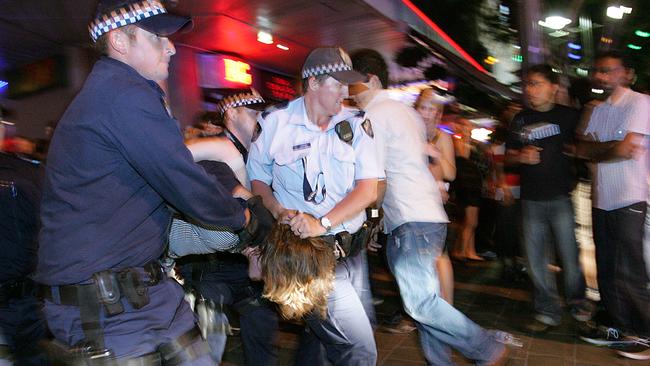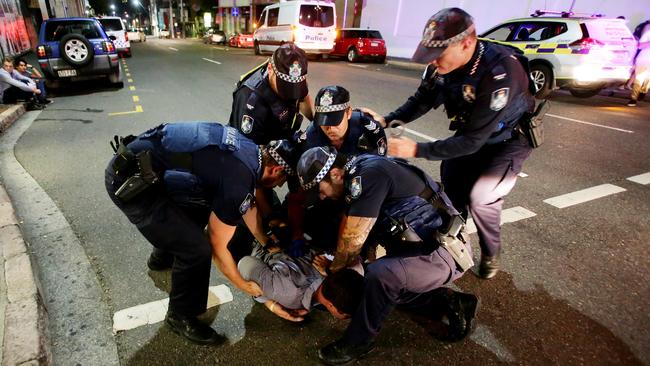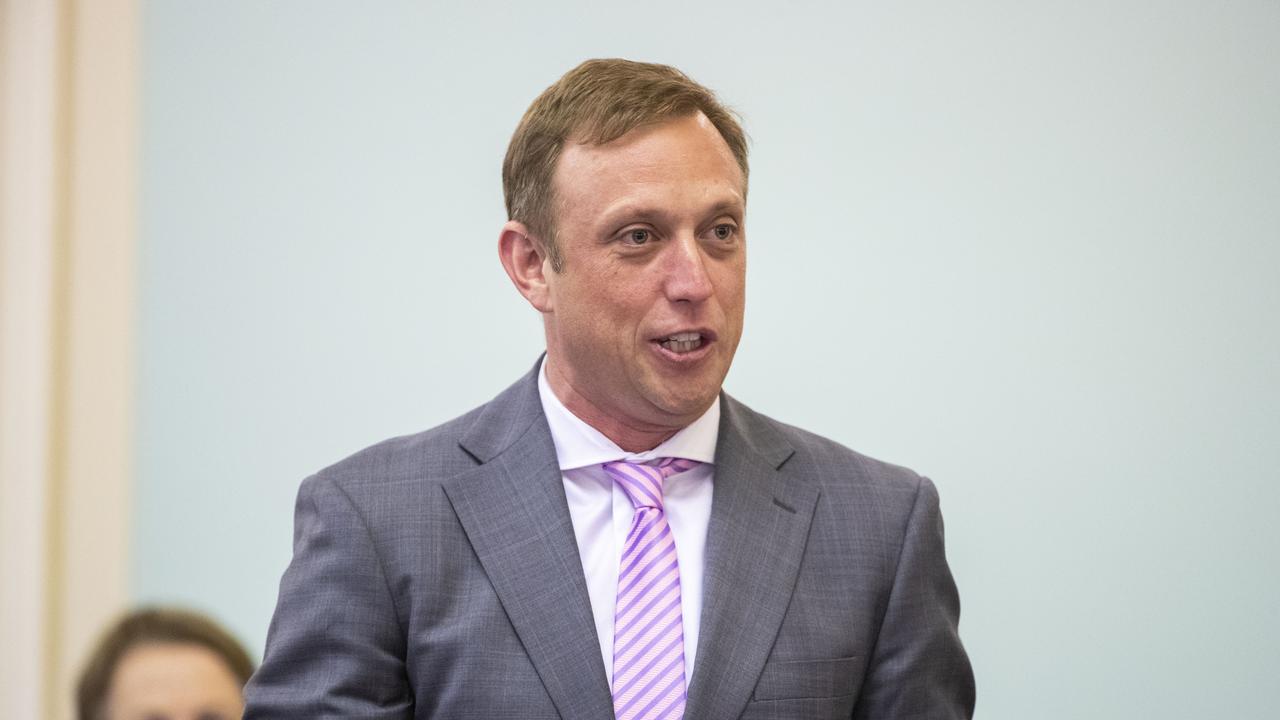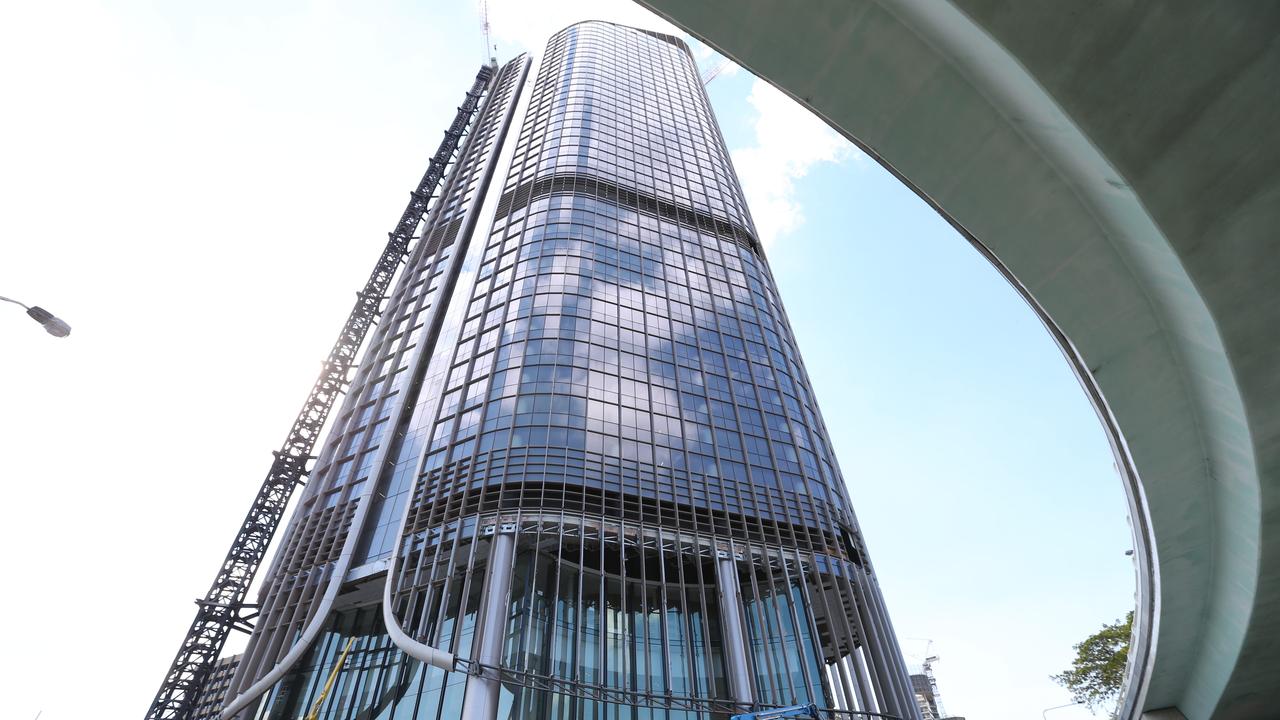Qld lockout laws fail to reduce alcohol-fuelled violence: study
Annastacia Palaszczuk says Cabinet will assess “another more comprehensive” report after an independent study found the state’s lock out laws were failing to reduce the number of assaults in party precincts.
QLD Politics
Don't miss out on the headlines from QLD Politics. Followed categories will be added to My News.
PREMIER Annastacia Palaszczuk says Cabinet will assess “another more comprehensive study” that her Government commissioned about its controversial lock out laws.
It comes after an independent study, led by Griffith University, found the number of assaults in Brisbane party precincts didn’t reduce directly after the laws were rolled out.
When asked about the study this morning, Ms Palaszczuk said the university report was “just one study”.
“ … There’s also another more comprehensive study that’s come to government and Cabinet will look at that study in due course,” she said.
“I haven’t seen the final report so as a Cabinet does we take into account a whole range of matters and we’ll be looking at the comprehensive report that we commissioned in relation to those laws.”
Lockout laws don’t stop crime. They send it elsewhere
Lockout law change to delay scanning for an hour after big events a win for pubs
The big myth about strict alcohol laws, as Sydney considers ditching lockouts

The Premier wasn’t sure who conducted the commissioned report.
“The whole purpose of the laws is to reduce violence and minimise harm, that’s fundamentally what it’s about and what we saw before the laws were introduced there were a lot of hospitalisations,” she said.
Opposition attorney-general spokesman David Janetzki said it was time for the Premier and Labor to admit their “ham-fisted laws have failed dismally”.
“This is independent long term research by respected Queensland academics and Annastacia Palaszczuk would do well to read it,” he said.
“The very point of Labor’s laws was to reduce violence.
“What we see is no reduction in violence and a dangerous increase in pre-loading and drug taking.
“Annastacia Palaszczuk and Labor promised their own review would be released by the middle of last year.
“Twelve months on we are still waiting for it. It will likely remain secret after today’s damning findings.”
EARLIER
QUEENSLAND’S controversial lockout laws failed to reduce the number of violent assaults directly following their rollout, with partygoers choosing to “pre-load” and take drugs before going out, new research reveals.
The study, led by Griffith University, also found there was no reduction in alcohol consumption within “night-time entertainment districts” (NEDs) while partygoers ventured out later.
Associate Professor Grant Devilly from Griffith, Queensland University of Technology’s Professor David Kavanagh and the University of Queensland’s Professor Leanne Hides conducted three studies from 2014 to 2017 on the blood alcohol readings of people as they arrived and left party districts in Brisbane.
They analysed arrest rates from the Queensland Police Service Crime Map for 2016 and 2017. There were seven assaults in the CBD and Fortitude Valley on April 2, 2016 with the same amount on March 25, 2017.
Meanwhile between January 1 to February 28, 2016, there were 132 assaults compared to 140 for the same period in 2017.
“People were substantially more inebriated as they entered the NEDs after the legislative change,” Associate Prof Devilly said.
“Crime statistics and patrons’ self-reported experiences of violence did not change.
“This is the first study to collect extensive data on blood alcohol levels, illicit substance use and assaults as people enter and exit nightclub entertainment districts, both before and after the introduction of this kind of legislation.”
The State Government in July 2016 wound back drinking hours and banned shots after midnight.
A 1am lockout was proposed, but the plan was ditched in early 2017 in favour of ID scanning and banning from July 1 that year.
During the study, partygoers told researchers they’d predicted the legislation would lead to heavier predrinking.
There were 850 people breathalysed during study one, 900 in study two and 1300 in study three.

“After the introduction of the legislation patrons entered the NEDs systematically later and increased their alcohol preloading,” the study read.
“People were substantially more inebriated as they entered the NEDs after the legislative change, with approximately 50 per cent fewer people not preloading after the new laws.”
Associate Prof Devilly said when people were asked why they preloaded, they said to save money or to socialise.
He said any change to legislation should encourage people to venture out earlier to limit predrinking, and encourage drinking in a controlled environment.
The study will be released today.


